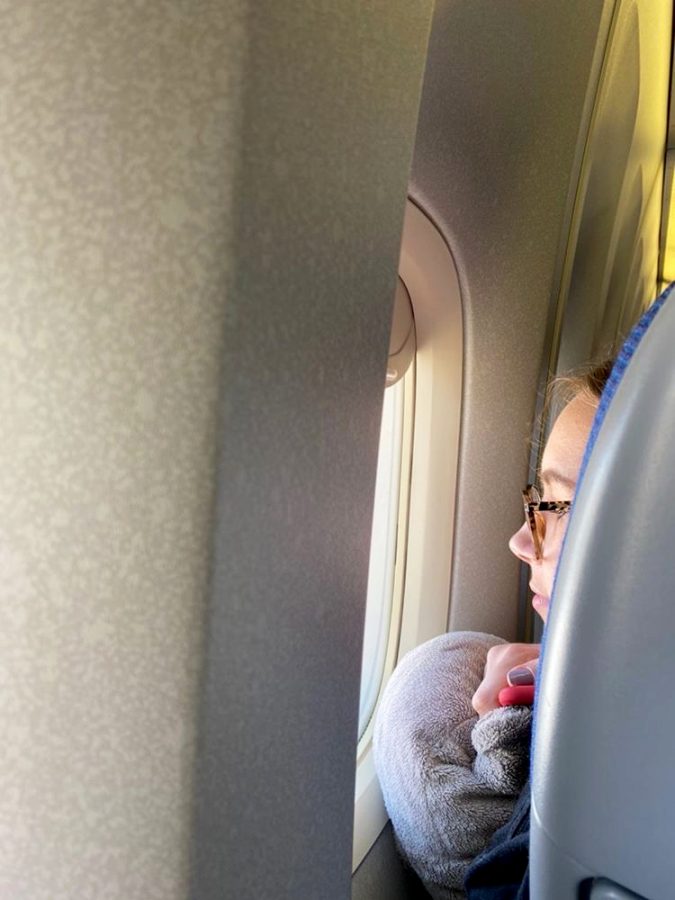Oceans Away, International Students Trade Sleep for Zoom Lectures
April 27, 2020
Many of California Lutheran University’s international students traveled home amidst the health risks and anxieties related to the COVID-19 pandemic. Now, they are taking extraordinary measures to continue virtual learning from across the world, within conflicting timezones.
Junior Aidan Liang moved back to China following the stay-at-home orders in California and Cal Lutheran’s Residence Life asking students to move out of the dorms. Liang said he had nowhere else to go.
“I have to wake up at 3:30 a.m. to take my Tuesday, Thursday classes and on Thursday, my class goes on until 12:30 p.m. which caught me off guard,” Liang said.
Senior Kaia Maudal decided to move back to Norway after Cal Lutheran announced they would continue virtual learning through the end of the semester. She said she has been able to attend her Zoom lectures.
“Norway is a whole nine hours ahead which makes my last class end at 1 a.m. that can again be exhausting when I have work at 7 a.m. the following morning, but so far I have managed to make it work,” Maudal said. “I think that most professors are pretty understanding, especially for us international students, when it comes to attendance and assignments.”
Some professors at Cal Lutheran said they have almost never experienced a shift to their curriculum that has been so sudden and required such great adaptation.
Associate Dean, Inclusion & Research/Creative Works and Professor of Political Science Gregory Freeland has been providing materials via email for students living across the world who are unable to attend classes.
Freeland has also offered rescheduled class sections to ensure he can accommodate all students.
“The transition to online classes is ongoing. New strategies are considered all the time,” Freeland said.
Adjunct Professor Angela Fentiman said she checks in regularly with all of her students, especially those who cannot attend her virtual lectures on Zoom.
Fentiman is also providing alternative assignments for those unable to attend class.
“To help accommodate international students or students in different time zones, I’ve put as much of the course materials online as possible and I’m flexible with Zoom class attendance and deadlines,” Fentiman said. “I’ve also provided asynchronous assignment options for in-class assignments. I don’t require students to turn on their videos during live classes so they can still listen even if they’re not feeling up to being on camera.”
Fentiman is keeping close communication and working with students individually to address any issues or concerns they may have. She added that the best way to accomodate students in different time zones is working individually with students to address their unique circumstances.
Though professors are making accommodations to aid the virtual learning experience, the thought of classes continuing online for the fall semester worries some international students.
Maudal said she hopes the decision of class format for the fall semester is announced soon “so that all the international students have time preparing for a completely different fall than they expected, this will also allow them to adjust their schedules so that they don’t have to take classes… in the middle of the night.”
Liang said that he might have to take the fall semester off if Cal Lutheran remains online.
“I don’t want to wake up in the middle of the night for [another semester]. That will be pretty painful,” Liang said.
Ada Thuland, a junior from Norway, said if Cal Lutheran chooses to continue virtual learning throughout the fall semester she may need to take a leave of absence.
“The Norwegian Krone is one of many currencies who are losing their value against USD because of this crisis,” Thuland said. “That makes it more expensive for us than previously to go to a U.S. school… [and] no one should have to wake up in the middle of the night in order to stay on track for graduation, so I think [Cal Lutheran] should give leeway for international students to change their schedules to fit their timezone.”



